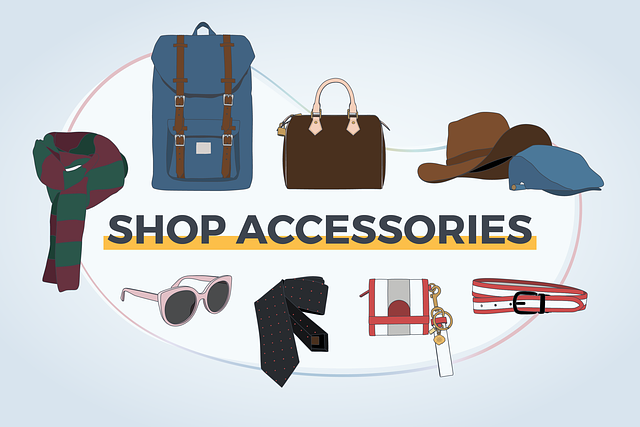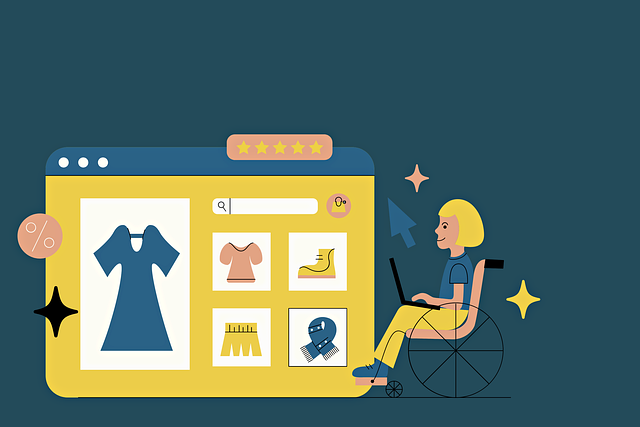
In the realm of fashion, designers and influencers utilize anonymous online shopping platforms not only for environmental sustainability but also to safeguard their creative processes and innovative ideas from theft. These platforms are instrumental for environmental scientists and activists as well, providing a secure, anonymous environment to research and collaborate without exposing sensitive data. The combination of an anonymous browser for environmental scientists and activists with advanced AI-driven personalized recommendations keeps users at the forefront of market trends by offering exclusive items before they hit the mainstream market. This technology ensures user privacy while enabling access to cutting-edge materials and fabrics, fostering a space where innovation can thrive without the fear of intellectual property theft. It's a powerful tool for maintaining confidentiality and integrity within the fashion industry, particularly for those who prioritize sustainability alongside confidentiality. These platforms are a testament to the importance of secure online practices, especially for eco-fashion designers seeking ethical suppliers while protecting their personal information and creative work from competitive espionage.
Navigating the intersection of fashion, influence, and privacy in the digital age, this article delves into the discreet online shopping habits of designers and influencers. It explores how these industry leaders leverage anonymous browsing tools to safeguard their intellectual property and source sustainable fabrics without compromising their privacy. From utilizing specialized platforms to employing an Anonymous Browser for Environmental Scientists and Activists, the fashion community is increasingly adopting strategies that blend innovation with discretion. This exploration sheds light on the practicalities of maintaining a competitive edge while respecting the environment and personal information.
- Navigating the Digital Closet: How Fashion Designers and Influencers Utilize Discreet Online Shopping Platforms
- The Anonymous Browser: A Tool for Environmental Scientists and Activists in Online Ventures
- Protecting Intellectual Property: Why Fashion Professionals Opt for Private Shopping Experiences
- Maximizing Privacy While Sourcing Fabrics and Materials: Tips for Eco-Conscious Designers
Navigating the Digital Closet: How Fashion Designers and Influencers Utilize Discreet Online Shopping Platforms

In the realm of fashion, where aesthetics and innovation intersect, designers and influencers alike are leveraging the anonymity afforded by discreet online shopping platforms to procure new items for their collections or personal wardrobes. These platforms offer a veil of privacy that is particularly valuable in today’s transparent digital landscape. By using an anonymous browser for environmental scientists and activists, these fashion professionals can navigate virtual ‘digital closets’ without revealing their identity or intentions. This not only safeguards their creative process but also allows them to explore upcoming trends and innovative fabrics without the risk of these ideas being replicated or leaked. The advantages of such platforms extend beyond privacy; they also provide a space for these industry leaders to engage with cutting-edge designers, source unique pieces, and even collaborate on exclusive projects that might shape future fashion narratives.
The discreet online shopping experience is further enhanced by the integration of advanced technologies such as AI-driven recommendations, which can curate personalized selections based on past preferences and current market trends. This ensures that designers and influencers are always at the forefront of fashion, with access to the most sought-after items before they hit the mainstream market. The convenience and security of these platforms mean that users can confidently make purchases without compromising their personal style or professional secrets. As a result, discreet online shopping is becoming an indispensable tool for those in the fashion industry who value both innovation and confidentiality.
The Anonymous Browser: A Tool for Environmental Scientists and Activists in Online Ventures

In the realm of online activities, environmental scientists and activists often require a high degree of privacy and security to protect sensitive information, collaborate on projects, or disseminate data critical to their cause. Anonymous browsers serve as a vital tool in this context, allowing users to navigate the web without revealing their real IP addresses or personal identities. These tools employ various techniques, including VPNs, proxy servers, and encrypted connections, to mask user activity and maintain anonymity. This level of privacy is crucial when sharing research findings, engaging with peers globally, or coordinating campaigns that may be targeted by entities with vested interests in maintaining the status quo. The ability to conduct discreet online shopping for supplies without alerting potentially harmful observers ensures the safety of both the individual and the environment.
Furthermore, environmental scientists and activists can leverage anonymous browsers not only for secure communications but also for conducting research. Accessing databases, monitoring wildlife populations, or analyzing environmental impact assessments can be performed with the confidence that their activities are shielded from prying eyes. The integration of advanced encryption protocols within these anonymous browsers means that even metadata – often thought to be harmless – is protected, providing a comprehensive layer of security. This technological safeguard is indispensable for those who dedicate themselves to preserving the planet’s integrity, allowing them to operate without fear of repercussions while contributing to the critical discourse on environmental conservation.
Protecting Intellectual Property: Why Fashion Professionals Opt for Private Shopping Experiences

For fashion professionals, maintaining the integrity and confidentiality of their designs is paramount, especially in an era where intellectual property (IP) can be easily duplicated or leaked. As such, these individuals often seek out discreet online shopping experiences to safeguard their original creations. An anonymous browser proves to be an indispensable tool for fashion designers and influencers who require a secure environment to browse fabrics, sourcing new materials, or purchasing supplies without the risk of their ideas being appropriated or compromised. This not only protects their unique concepts but also ensures that their innovations remain proprietary until they’re ready to be revealed to the public. The anonymity provided by such browsers allows these creatives to conduct market research, examine competitor products, and gather inspiration without fear of their activities being traced back to them, thus preserving the competitive edge and originality that are the hallmarks of successful fashion ventures.
In addition to the protection of IP, discreet online shopping also offers fashion professionals the convenience of sourcing from a global marketplace while maintaining their privacy. This is particularly valuable for designers who are in the early stages of concept development or for those looking to procure unusual or limited-availability items. The use of an anonymous browser ensures that their search history does not leave a digital footprint, which could lead to information being leaked or competitors gaining insights into their upcoming designs. By maintaining a veil of secrecy around their purchasing habits and research, fashion designers and influencers can operate with greater autonomy, freedom, and security, allowing them to innovate without the overhanging concern of having their ideas copied or their processes scrutinized before they choose to disclose them.
Maximizing Privacy While Sourcing Fabrics and Materials: Tips for Eco-Conscious Designers

In an era where sustainability and privacy are paramount, eco-conscious fashion designers and influencers must navigate the complex landscape of sourcing materials with a heightened sense of discretion. To maintain their privacy while securing sustainable fabrics, these professionals can leverage tools like an anonymous browser for environmental scientists and activists. Such browsers offer a secure platform to explore suppliers without revealing personal information, thus protecting creative endeavors and trade secrets. By utilizing Virtual Private Networks (VPNs) in conjunction with this browser, designers can ensure their online activities remain confidential, safeguarding against unwanted exposure that could lead to copycats or the compromise of their innovative designs.
When sourcing eco-friendly materials, it’s crucial to engage with suppliers who prioritize transparency and ethical practices. Designers should look for certifications like Global Organic Textile Standard (GOTS) or Fair Trade to verify the authenticity of a supplier’s sustainable claims. Additionally, maintaining an anonymous presence allows designers to negotiate fair prices without revealing their full intentions or potential market value. This approach not only protects personal privacy but also fosters a more honest and equitable exchange between creators and suppliers. By carefully selecting suppliers who align with sustainability values and using digital tools to maintain anonymity, eco-conscious designers can build a foundation for responsible sourcing that respects both the environment and their own need for confidentiality.
In the dynamic realm of fashion, designers and influencers are increasingly leveraging discreet online shopping platforms to source innovative materials and protect their intellectual property. These platforms, often facilitated by an anonymous browser specifically designed for environmental scientists and activists, offer a shield of privacy that is invaluable in today’s transparent digital landscape. As the demand for sustainable practices grows, fashion professionals can maximize their privacy while still sourcing the best materials for their eco-conscious designs. The insights provided in this article underscore the importance of such tools in safeguarding both creativity and environmental integrity. Embracing these strategies not only ensures the originality of designs but also aligns with a growing consumer preference for transparency and sustainability in fashion.





